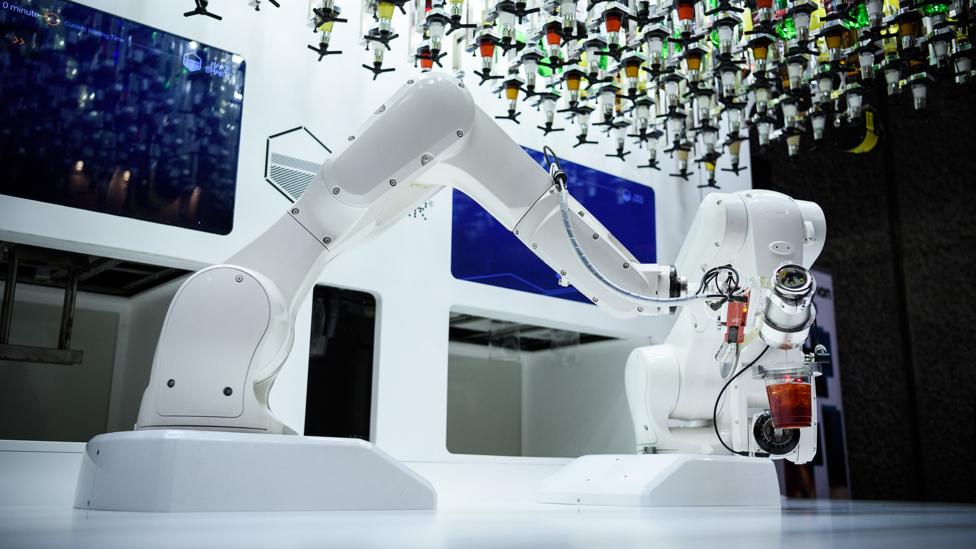Is ‘AQ’ more important than intelligence?
As workplaces change, is it enough to be smart? Enter AQ, the capacity to adapt that may well determine your future career success.
By Seb Murray -6th November 2019
O
Once, if you wanted to assess how well someone might do climbing the career ladder, you might have considered asking them to take an IQ test. For years, it was thought that the intelligence quotient (IQ) test – which measures memory, analytical thinking and mathematical ability – was one of the best ways to predict our future job prospects.
More recently, there has been increased attention on emotional intelligence (EQ), broadly characterised as a set of interpersonal, self-regulation and communication skills. EQ is now widely seen as a tool kit that plays an important role in helping us succeed in multiple aspects of life.
IQ is the minimum you need to get a job, but AQ is how you will be successful over time – Natalie Fratto
Both IQ and EQ are considered important to our career success. But today, as technology redefines how we work, the skills we need to thrive in the job market are evolving too. Enter adaptability quotient, or AQ, a subjective set of qualities loosely defined as the ability to pivot and flourish in an environment of fast and frequent change.
“IQ is the minimum you need to get a job, but AQ is how you will be successful over time,” says Natalie Fratto, a New York-based vice-president at Goldman Sachs who became interested in AQ when she was investing in tech start-ups. She has subsequently presented a popular TED talk on the subject.
Fratto says AQ is not just the capacity to absorb new information,but the ability to work out what is relevant, to unlearn obsolete knowledge, overcome challenges, and to make a conscious effort to change. AQ involves flexibility, curiosity, courage, resilience and problem-solving skills too.
As society changes, could AQ be more crucial to career success than IQ? If so, how do you identify it – and is there a way to hone AQ to future-proof your career?
Tending bar requires lots of skills that can’t be automated yet – It’s process-driven tasks like document review that are more susceptible to change (Credit: Getty Images)
Adapt – or become obsolete
Amy Edmondson, a professor of leadership and management at Harvard Business School, says it is the breakneck speed of workplace change that will make AQ more valuable than IQ.
Technology has vastly changed how many jobs are done, and the disruption will continue – over the next three years, 120 million people in the world’s 12 largest economies may need to be reskilled because of automation, according to a 2019 IBM study.
Over the next three years, 120 million people in the world’s 12 largest economies may need to be reskilled because of automation
Any roles that involve spotting patterns in data –lawyers reviewing legal documents or doctors making a patient diagnosis, for example – are easy to automate, says Dave Coplin, CEO of The Envisioners, a UK-based technology consultancy. This is because an algorithm can do these tasks faster and more accurately than a human, he says.
To avoid obsolescence, workers doing these jobs need to develop new skills like creativity to solve new problems,empathy to communicate betterand accountability, using human intuition to supplement insight from machines.“If an algo can do 30% of the tasks that I used to do, what can I do with that spare capacity? The winners are those who choose to do things that algos can’t.”
Edmondson says every profession will require adaptability and flexibility, from banking to the arts. Say you are an accountant.Your IQ gets you through the examinations to become qualified, then your EQ helps you connect with an interviewer, land a job and develop relationships with clients and colleagues. Then, when systems change or aspects of work are automated, you need AQ to accommodate this innovation and adapt to new ways of performing your role.
All three quotients are somewhat complementary, since they all help you to solve problems and therefore adapt, Edmondson says. An ideal candidate possesses all three,but not everyone does. “There are rigid geniuses,” she says.Having IQ, but no AQ would leave you struggling to embrace new ways of working using your existing skills – and low AQ makes it harder to acquire new ones.
The IBM study found “willingness to be flexible and adaptable to change” was the most critical skill for workers in 2019, up from fourth place in 2016 (Credit: Getty Images)
Asking ‘what if’
AQ is now increasingly being sought at the hiring level. According to the IBM study, 5,670 executives globally rated behavioural skills as most critical for the workforce today, and chief among them was the “willingness to be flexible, agile and adaptable to change”.




